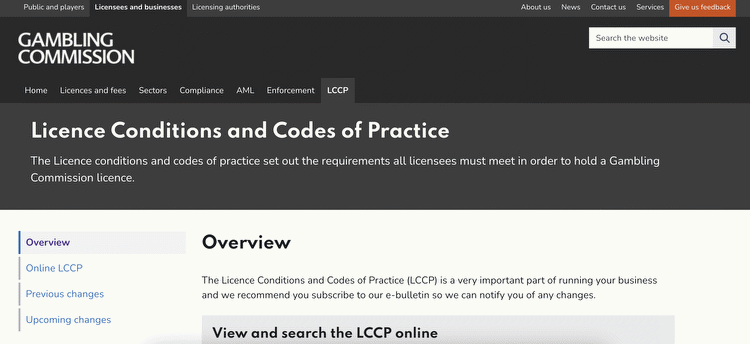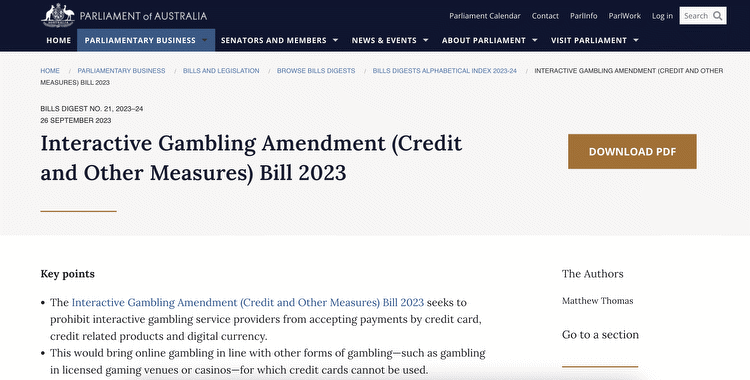Where are Crypto Casinos Legal? Gambling Laws Explained

According to a MarketsandMarkets report, the crypto casino industry will be worth $65.7 billion by 2027. But that begs the question – where are crypto casinos legal?
This guide explores the regulatory landscape surrounding crypto gambling in 2024. We also look at crypto casino licensing and how Bitcoin gambling winnings are taxed.
There are two elements to consider when exploring crypto gambling laws. The first aspect is the legality of crypto assets themselves. This is because cryptocurrencies aren’t legal in all jurisdictions. For instance, the Chinese government enacted an overall ban on crypto assets in 2021. Therefore, it’s safe to say that crypto gambling is also illegal for Chinese residents.
The second element to consider is the legality of gambling. Once again, this varies from one jurisdiction to the next. For instance, online gambling is illegal in many Asian countries, including Thailand, Indonesia, and Malaysia. In contrast, the UK and most European countries embrace online gambling, albeit with strict regulations in place.
The key issue is that existing gambling laws do not specifically reference crypto assets. This means that in many countries, crypto casinos operate in a gray area. What’s more, the best Bitcoin casinos do not have a KYC procedure, meaning players aren’t required to provide personal information. When combined with a VPN, this makes enforcement challenging.
For example, the UK Gambling Commission claims that crypto deposits should follow the same rules as standard payments. This means KYC checks and social gambling responsibilities. However, the UK Gambling Commission only has jurisdiction over casino sites it licenses. This again shows that regulating crypto casinos is a complex task.
Does Using a Crypto Casino Change the Legality of Online Gambling?
The legalities of crypto casinos will depend on the country of residence. As stated, players need to assess the rules on crypto transactions and online gambling. For instance, while crypto assets might be legal, online gambling could be prohibited.
“There are no specific laws regulating Bitcoin gambling. It is neither officially allowed nor prohibited.”
SoftSwiss explains that in most countries, Bitcoin is not considered a ‘real’ currency. This is an important distinction to explore. The IMF, for example, also notes that crypto assets aren’t legal tender (with the exception of the Central African Republic and El Salvador).

This means that existing gambling regulations are open for interpretation. In other words, if crypto assets aren’t considered ‘real’ money, then are they licensed the same as fiat currency?
In addition, we found that the best decentralized gambling sites hold a Curaçao e-gaming license, issued by the Governor of Curaçao. In most cases, Curaçao-licensed platforms do not have a KYC process. This is only permitted when players deposit, gamble, and withdraw crypto assets.
Regulated crypto casinos often support debit/credit cards too, which are processed by external payment providers. This will invariably trigger a KYC process, ensuring that crypto casinos remain compliant with anti-money laundering regulations.
Therefore, the consensus is that using crypto assets can change the legality of online gambling. As we cover in the next section, there are some exceptions.
Crypto Gambling Laws Around the World
We’ll now explore how crypto gambling laws vary in different parts of the world. This will give you a better understanding of how crypto casinos are viewed by governments and regulators.
US
First and foremost, cryptocurrencies in general are perfectly legal in the US. Gambling laws, however, are determined on a state-by-state basis. According to CBS Sports, online sports betting is legal in over 30 US states. Casino games, however, are viewed differently by each state.
Crucially, regulations become ‘gray’ when factoring in offshore casinos. For example, BetOnline – which is based in Panama, has been serving US clients since 1991. It supports all US states apart from New Jersey. Interestingly, BetOnline accepts crypto assets and fiat money payments.
In contrast, many crypto-only casinos explicitly state in their terms and conditions that US players are banned. This is the case even though crypto is the only payment type accepted. However, these casinos do not have KYC policies, meaning many US players still use them.
Whether or not this is legal remains to be seen, considering a lack of crypto gambling regulations in the US. Ultimately, some states specifically ban offshore casinos, while others don’t. This is the case regardless of the payment method. We’d suggest checking the rules in the state you live in for clarity.
UK
The UK has some of the most relaxed gambling laws globally. It permits all forms of gambling, including land-based and online casinos, lotteries, horse and greyhound tracks, and betting shops. That said, the UK also has a stringent regulatory landscape. Governed by the Gambling Commission, this ensures that UK players can gamble in fair and safe conditions.

The Gambling Commission only enables casinos to serve UK players if a license has been issued. So what’s the Gambling Commission’s stance on crypto casinos? As we briefly mentioned earlier, UK-licensed casinos must comply with the Gambling Commission’s Licence Conditions and Codes of Practice.
This means that regardless of whether crypto or fiat money is being used by UK players, anti-money laundering rules remain consistent. In light of this, most crypto casinos do not accept UK IP addresses. However, we found that many UK players use a VPN to bypass geo-restrictions.
Considering that crypto casinos offer anonymous accounts, there’s no way of them knowing that players are visiting from the UK.
Canada
Online casinos based in Canada must be regulated at a provincial level. However, no laws prevent Canadians from using an offshore casino site. This is the avenue that most Canadians take. In terms of cryptocurrencies, the industry is perfectly legal throughout Canada.
With this in mind, Canadians have two options when gambling cryptocurrencies. First, they can use an online casino that’s regulated in their respective province. Alternatively, they can use a crypto casino based outside of Canada. This means Canadians have access to the best Bitcoin gambling sites.
Australia
Australia has strict laws when it comes to online gambling. According to the Victorian Responsible Gambling Foundation, casino games, slots (pokies), and scratchies are prohibited when using an online casino site. Interestingly, online sports betting is legal when using a licensed provider. However, ‘in-play’ betting specifically is prohibited.
Cryptocurrencies, however, are legal throughout Australia. So where does this leave crypto casinos? Well, the Australian House of Representatives recently approved a new bill prohibiting credit cards and cryptocurrency when gambling. Once enacted, crypto casinos will likely block Australian IP addresses.

However, we should once again stress that enforcement is challenging. One of the main attractions of crypto casinos is the anonymity afforded. Not only can players use a VPN but they’re not asked for their country of residence when joining. What’s more, crypto transactions are not tied to the identity of the sender or the receiver.
Here’s a summary of the countries we covered above:
Crypto Gambling Licenses
There aren’t any crypto-specific gambling licenses that exist. Instead, each gambling commission will have its own stance on gambling with crypto. For instance, we’ve established that the UK Gambling Commission doesn’t differentiate between fiat and crypto payments. On the contrary, its licensees must implement the same rules.
That said, some gambling commissions do not refer to crypto assets at all. Nonetheless, after researching the best Bitcoin blackjack sites, we discovered a common denominator; reputable crypto casinos are authorized and regulated by the Governor of Curaçao. This is likely because of several reasons.

For a start, Curaçao gambling laws are a lot more flexible than other jurisdictions. Especially when compared to the UK and Australia. For instance, the license application process is a lot more seamless in Curaçao. In contrast, the UK Gambling Commission has a much longer and more stringent process.
In addition, Curaçao allows licensees to operate globally. This is crucial for crypto casinos, which need to accept players from around the world. In contrast, Australian-licensed sports betting sites can only accept Australian players. Curaçao is also attractive to crypto casinos because of favorable tax laws.
What’s more, Curaçao is considered a crypto-friendly nation. However, although leading crypto casinos are licensed in Curaçao, consumer protections are limited.
Crypto Gambling Tax
Let’s explore everything you should know about cryptocurrency gambling taxes in 2024.
Let’s consider some examples of how crypto gambling can be taxed.
Neither the UK, Canada, or Australia levies taxes on gambling winnings. The only exception in Canada and Australia is if gambling is the primary income source for the individual.
In the US, gambling winnings must be reported as income in the respective year. This is the case regardless of whether fiat money or crypto assets were used.
In the vast majority of countries, including the US, the UK, Canada, and Australia; capital gains on cryptocurrencies are taxed. This is relevant to crypto gambling, due to the volatile nature of digital assets.
For example:
- Suppose you buy 1 BTC and deposit it into a crypto casino. At the time, Bitcoin was worth $30,000.
- A few days later, you withdraw 1.5 BTC back to your private wallet. On the day of the withdrawal, Bitcoin is worth $40,000.
- The original deposit was 1 BTC. If you sell the 1 BTC, you’ll have capital gains of $10,000 ($40,000 – $30,000).
- The cost basis for the 0.5 BTC gambling winnings is $40,000 per Bitcoin. If you sell the 0.5 BTC at the same price, no capital gains will apply.
These rules are generalized and can differ depending on the country. For more detailed information, read our guide on crypto tax statistics.
Can You Play Legally in Crypto Casinos?
In summary, crypto gambling laws are not only complex and open for interpretation, but they vary depending on the jurisdiction. What’s more, enforcing crypto gambling regulations is a whole different story.
This is because most crypto casinos offer anonymous accounts, meaning the player’s location isn’t collected. Ultimately, it’s best to research the laws in the country you live in. This will help you understand whether or not crypto gambling is legally permitted.
References
FAQs
Is crypto gambling legal?
The legalities of crypto gambling vary depending on the country. Players should assess gambling and cryptocurrency laws in their country of residence.
In which countries is crypto gambling legal?
Crypto gambling is legal in many countries, including the UK, Canada, and most US states. However, this comes with exceptions. For instance, although UK players can legally gamble cryptocurrencies, they can only use a platform that’s licensed by the Gambling Commission.
Is crypto gambling legal in the US?
Online gambling laws in the US are determined on a state-by-state basis, irrespective of whether fiat money or crypto is being used. While some states explicitly ban offshore casinos, others do not.
Is crypto gambling legal in the UK?
Yes, crypto gambling is legal in the UK. However, the casino site must be licensed by the UK Gambling Commission.
Is crypto gambling legal in Canada?
Yes, crypto gambling is legal in Canada if the casino is based offshore. It’s also legal when using a domestic casino that’s licensed provincially.
Is crypto gambling legal in Australia?
Crypto gambling will soon be made illegal in Australia. The Australian House of Representatives recently approved a draft bill that bans credit cards and crypto as a gambling method.





































